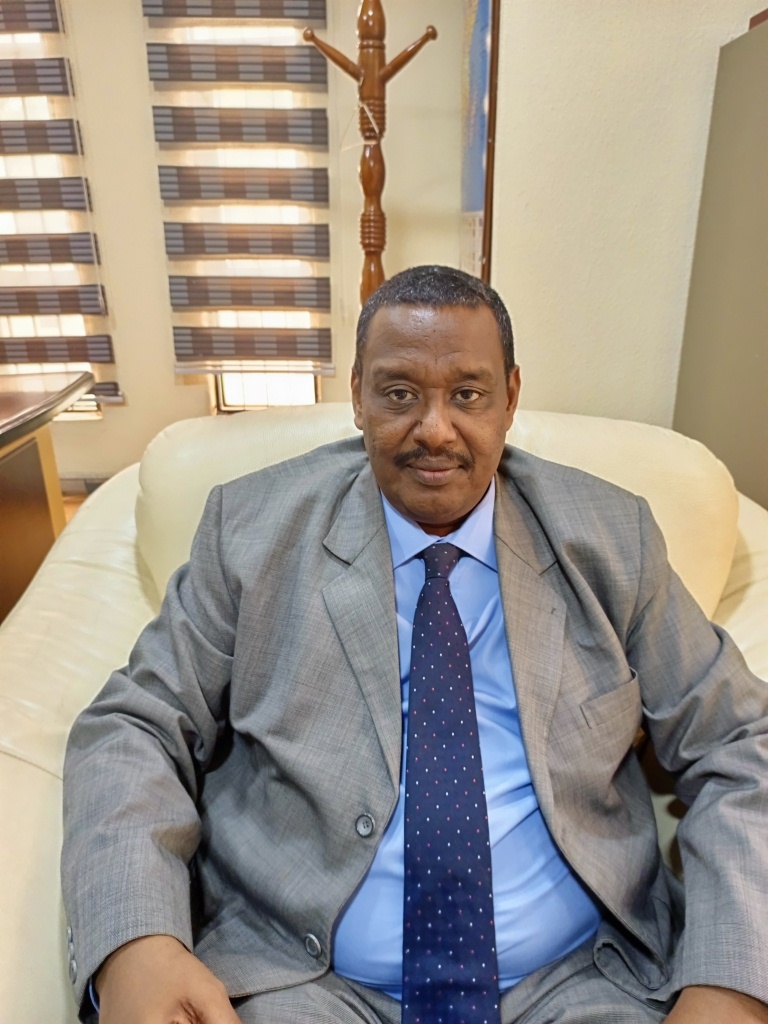
Diplomatic relations between Sudan and Nigeria have been very good over the years, and the two countries are determined to improve their volume of trade. Chargé d’affaires of Sudan Embassy in Nigeria, Ahmed Omer Taboul speaks exclusively to Sunday Oyinloye, Publisher, Green Savannah Diplomatic Cable about this, and what makes Sudan unique as a country
Excerpts:
I want you to share your experience since you were posted to Nigeria, do you feel at home here?
Of course I feel at home in Nigeria. I came to Nigeria last year. This is my first time in Nigeria in my career as a diplomat. I started with Europe, from there to India, and later Saudi Arabia before I was posted to Nigeria. Since I came here, I feel comfortable with the people. From day one, I adapted to the atmosphere of the country. The people are very friendly. You can hardly differentiate between Nigerians and Sudanese in many aspects of life. We have similarity in many things like culture, religion, food and other things including attitude .So, because of this, I was able to adapt quickly. Another factor is that we have a large number of Sudanese in Nigeria. They are many in Abuja, Kano, Lagos and other places particularly the Northern part because of our historical ties with Nigeria .The Sudanese community in Nigeria has been wonderful.
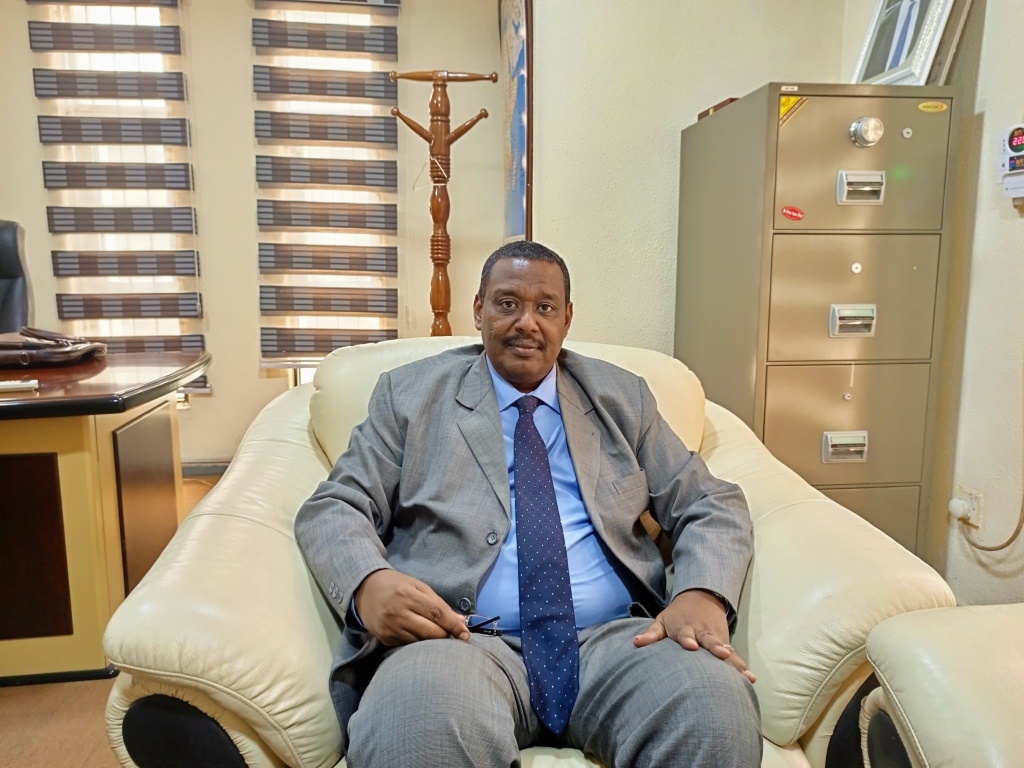
What is the volume of trade between Nigeria and Sudan?
We have been having a good relationship with the Ministry of Foreign Affairs. The Embassy has keep good relations with the Department of Horn and North Africa regarding bilateral issues between Sudan and Nigeria and also issues of mutual concern at the Africa Union , so we keep very good relations with the government and people of Nigeria. We have a joint committee which deals with economic cooperation, cultural cooperation and other issues. Talking about the volume of trade between the two countries, the commercial balance is approximately $10 million for Nigerian export to Sudan compared to $700,000 in Nigerian imports from Sudan. However, the two countries are working to increase the figure. We have Joint Business Council. The purpose of this Council is to increase investments in both countries through the private sector. We are working closely with Nigerian Export Promotion Council. We have cooperation between Sudan and Nigeria is sugar production; there is technical cooperation between Sudanese Sugar Company and Dangote Sugar Company in Nigeria .Some of our Engineers are working at Dangote Sugar Company
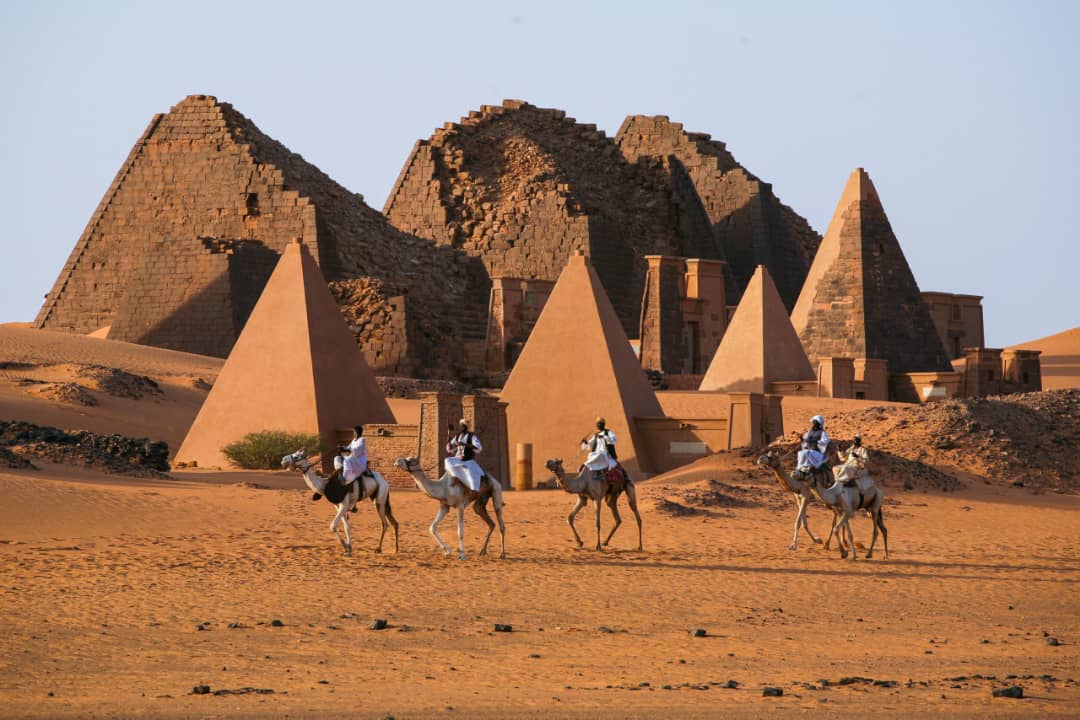
What are you doing to boost trade between Sudan and Nigeria?
We have Ministerial Committee; we also have political consultation committee between the Ministry of Foreign Affairs in Sudan and the Ministry of Foreign Affairs in Nigeria. Through these two committees, we usually plan our activities. The government of Sudan always encourages the private sector on investment. It is easier to boost trade through the private sector and that is why government is encouraging the private sector and this will automatically reflect in the interest of the two countries. Already, we have bilateral agreement and Memorandum of Understanding with the Nigerian side. Some of these MoUs and agreements have been signed and ratified by the parliament. We have transitional government in Sudan now but we are trying with the Nigerian side through these committees and meetings to boost the relations between the two countries in terms of trade and other activities. We have a lot of plans. For instance, before the crisis in Sudan, we were working on Airlines to commence direct flight between the two countries, particularly from Kano, Abuja and Lagos because we believe it is one of the ways to further boost trade between the two countries. Let me also mention that we have a mass project with the Organisation of Islamic Countries (OIC) for the construction of highway from Dakar to the Port of Sudan. It will come through Senegal, then to Mali, Niger, Nigeria, Cameroon, Chad and Sudan, then to Gulf States Asia and Far East. This is a great project that is still under assessment
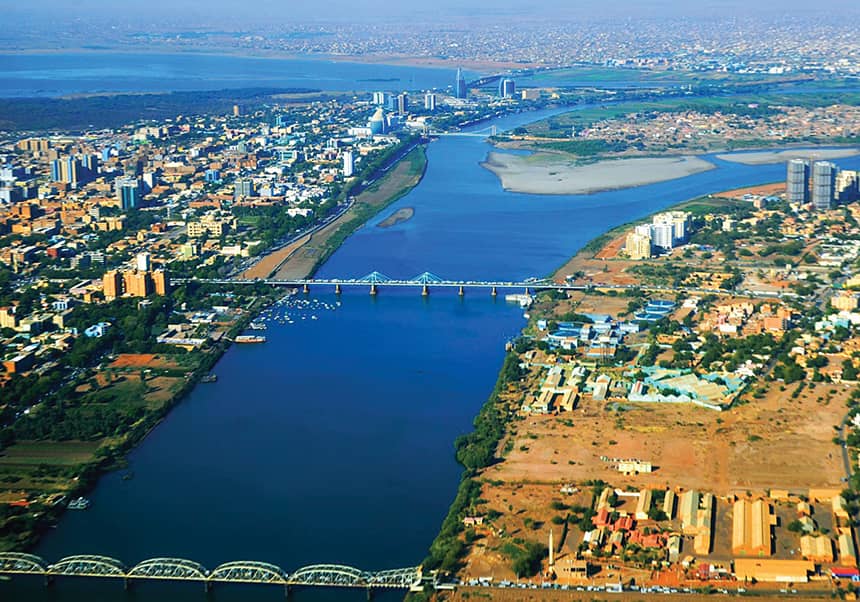
Who is funding the project?
OIC will fund it, but it needs to be supported by the governments of where the high way will pass through. The highway will have railway line. The highway will ease movements of all people and goods. We also have good relations with Nigeria in the area of education. There are more than 10,000 Nigerian students in Sudan. After the crisis in Sudan, about 3000 of them were evacuated to Nigeria, but the rest are there. Most of them moved from the area where there is crisis to parts of Sudan, particularly the East and North part of Sudan. Most of these students have their relations in Sudan. There are lots of Nigerians in Sudan. After the crisis, some universities and colleges in Sudan that are affiliated to Nigerian universities, allowed these students to continue their studies here, particularly the final year students.
You have hundreds of ethnic groups in Sudan, what is government doing to promote unity among these ethnic groups?
You are correct, that is the main feature of Sudan. As you might know, Sudan is multi-ethnic country. We have more than 500 tribes in Sudan. Some Sudanese are originally Arabs, some Africans, but in general, everyone is a Sudanese. Sudan is a land of everyone. We have lived together for centuries without any problem. We try to avoid any type of clashes. The Sudanese government is very keen about promotion of unity. Government has many policies and programs which it uses to keep the citizens united. We have federalism in Sudan exactly what you have in Nigeria. People have equal political rights; there is freedom for the citizens. They have access to education, healthcare and each state has its own administrative economic system. People elect their representatives at the local council, and so all the citizens are carried along to engender peace and unity. Government is also keen about equity and giving moral support to the youth.
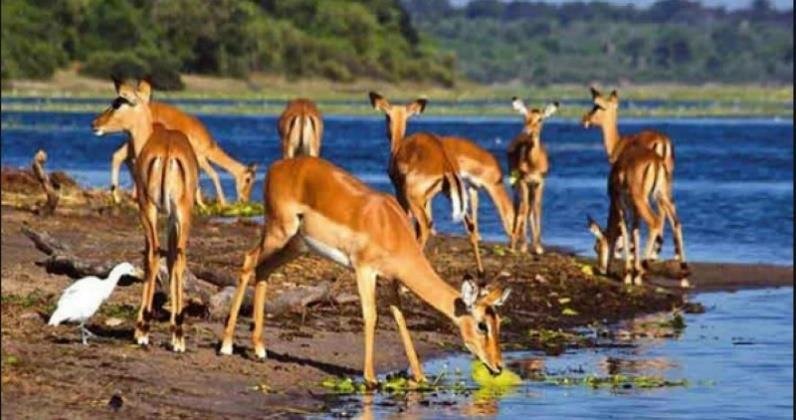
Can you tell us what the Sudanese government is doing to boost the oil sector?
Oil was discovered in Sudan in the late 70s and 80s. However oil production didn’t start until late 90s. This was made possible by consortium of companies from China, Canada and Malaysia and some local companies. So oil production started from different parts of Sudan, mainly from the Western part of Sudan. We started with 125,000 barrels per day to 150,000 barrels per day. It later moved to 500,000 barrels per day. But when Southern part of Sudan left, most of the oil went to them. But we still produce about 100,000 barrels per day. Now we have the know-how of the oil industry. We have our own pipeline from the southern part of Sudan up to the Port of Sudan where we export the crude oil. Sudan has about three refineries and Centre for Information and Training
Are the refineries still working?
Yes they are working. We have a small refinery in Port Sudan; we also have in the western part of Sudan which is also small; about 10,000 barrels per day. The Khartoum refinery has capacity of 100,000 barrels of oil per day. However, activities at the refinery have been disrupted by crisis. It has been seized by the rebel, but we are trying to take it back. Let me add that we have a sort of relations with Nigeria in the oil sector. Some engineers in the oil sector in Sudan are now working with Dangote refinery.
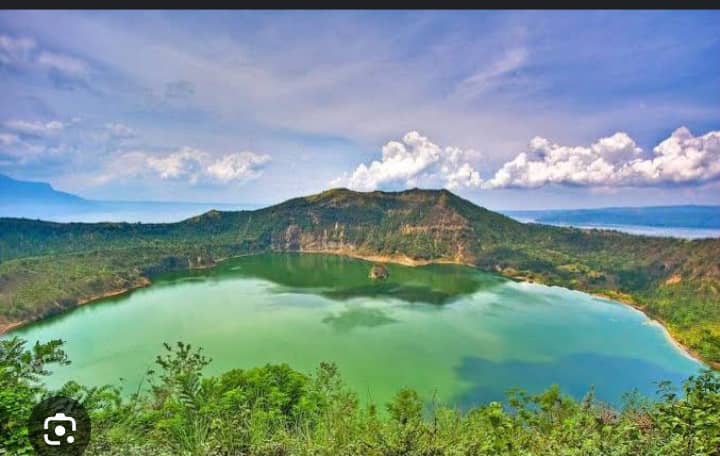
Apart from oil, Sudan produces livestock, cotton, Sesame and Gum Arabic. These are your major exports, what are you doing to give attention to these products?
Agriculture is our main activity in Sudan. More than 80 percent of Sudanese work in this sector. We have comparative advantage in this sector. We have good arable land. We also have good water resources. It is a very vital sector of our economy and the government of Sudan is doing everything possible to boost the Agricultural sector. Sudanese government is paying attention for the production of those cash crops and also the livestock aspect of Agriculture. We are also adding values to the cash crops and not just producing it. In Gum Arabic, we are the first in the world. We are producing about 80 percent of the Gum Arabic in the world. We export it to USA, Europe particularly UK and France and also Germany. Our cotton plantations are also fantastic. We export of cotton to Arab world mainly to Syria and Egypt and some Asian countries
Why not Nigeria because there are many textile industries in Kaduna and Lagos?
We are presently working on that. We are working on Nigerian market. In this regard, we are making contacts with our farmers and businessmen. We know that the market here is huge. We are not only encouraging them to export cotton to Nigeria but to also to come and share their knowledge with Nigerian cotton farmers. We will continue to do our best at the Embassy to fast track it.
Why should any tourist visit Sudan, what are the attractions?
Tourism sector is very important for every country. Sudanese government gives the sector a great emphasis. Tourism is one of the key sectors of the economy. We have pyramids in Sudan. We have some UNESCO world heritage sites in Sudan. We receive many tourists from Europe, and other parts of the world. There is the famous Dinder National Park and biosphere reserve located in the eastern part of Sudan which is one of the biggest in Africa. We also have about 300 pyramids built in ancient times. We always say pyramids start from Sudan. We also have River Nile. Tourists have the opportunity of enjoying River cruise in Sudan. We have great sceneries that would fascinate any tourist. The White and Blue Nile also joined in the capital, Khartoum. As you know tourism thrives where there is good network of roads, railway regular flight, hotels, and telecommunication. This is what our government is trying to do in order to attract tourists to Sudan. Tourist guides are also being trained to give tourists lasting experiences. We also have mountains and other resorts that tourists will enjoy if they visit Sudan. Government is doing everything possible to add value to the tourism sector
What makes Sudan unique from other Arab countries?
Sudan is a very special nation, we are not completely Arabs and we are not completely Africans; we are a special people. We have our own cultures, features and heritage which are totally different from Arabs and Africans. That is why we always say Sudan is a bridge between Africa and Arab world. We can relate and flow easily with Arabs and Africans. We are accepted on by both sides. When we are sitting with Arabs, they consider us as Arabs and when we are sitting with Africans, they consider us as Africans. However, by virtue of our culture and features, we are Africans typically. We are one people, we are Sudanese nation. We are a united people and there is no segregation. Outside of our country when we are asked to fill forms with the question of whether we are Africans or Arabs, we simply say that we are Sudanese or we simply write Afro-Arab. That is what makes us unique. Sudan is the gateway between Africa and the Arab world. In Sudan, you can find in one family, white, colour and black. You can find Muslims and Christian. And in the past, when South Sudan was still part of Sudan, you could find other religions. In Sudan, we are all living together in peace and unity,









